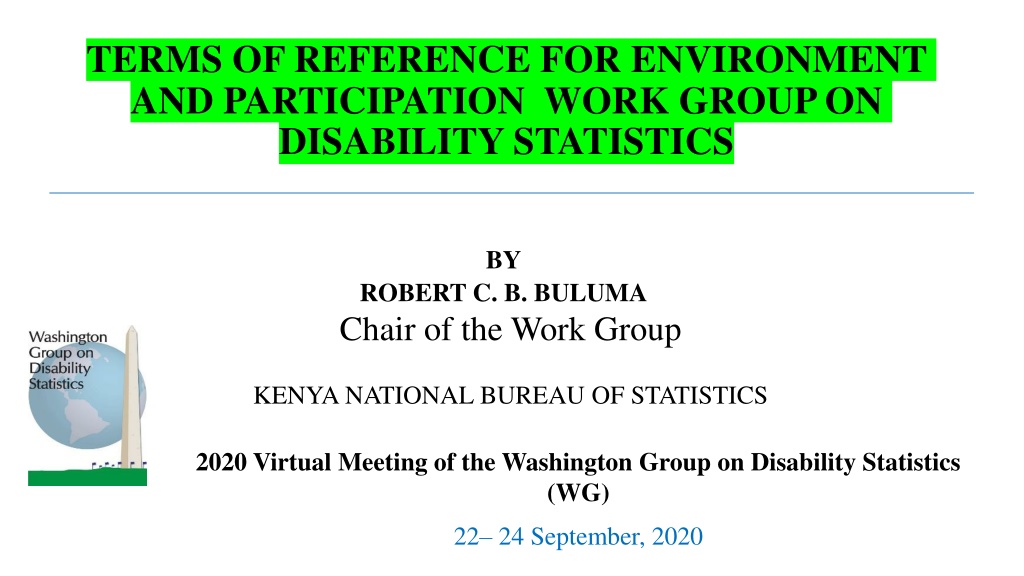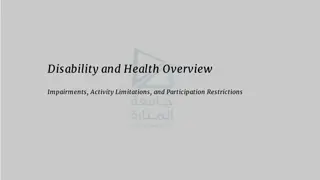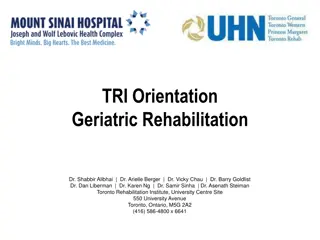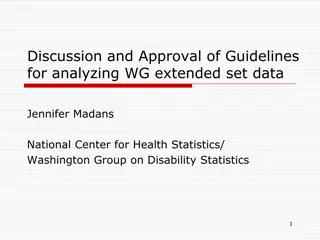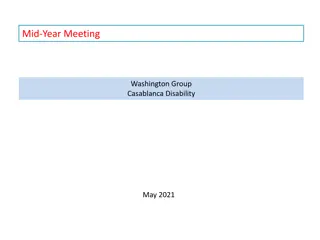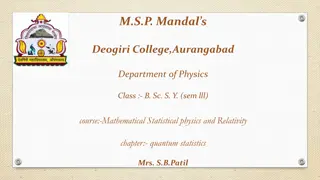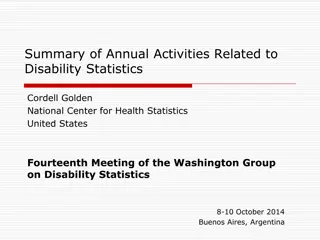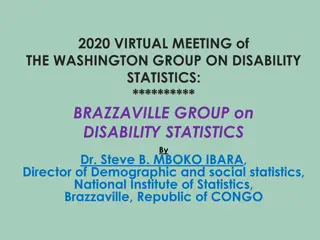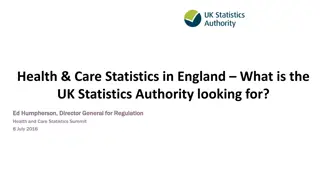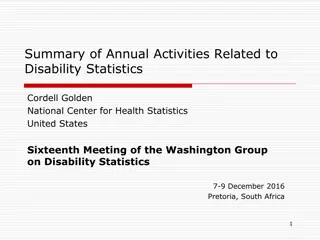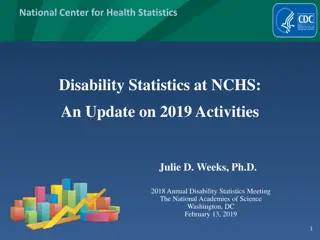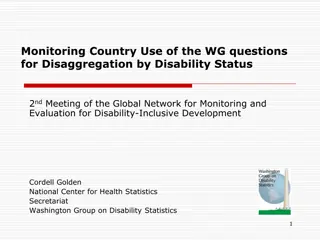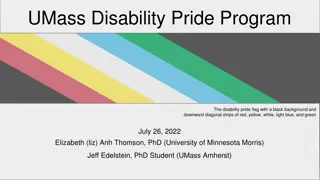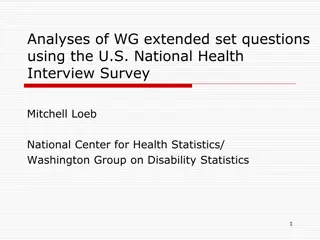Environment and Participation Work Group on Disability Statistics: Terms of Reference
The Environment and Participation Work Group, chaired by Robert C. B. Buluma, aims to address the complexities in collecting data on environments impacting persons with disabilities. It focuses on aspects like accessibility, inclusivity, and barriers encountered in daily life. The group seeks to develop standardized questions to assess the environment's impact on participation, especially for PWDS.
Download Presentation

Please find below an Image/Link to download the presentation.
The content on the website is provided AS IS for your information and personal use only. It may not be sold, licensed, or shared on other websites without obtaining consent from the author. Download presentation by click this link. If you encounter any issues during the download, it is possible that the publisher has removed the file from their server.
E N D
Presentation Transcript
TERMS OF REFERENCE FOR ENVIRONMENT AND PARTICIPATION WORK GROUP ON DISABILITY STATISTICS BY ROBERT C. B. BULUMA Chair of the Work Group KENYA NATIONAL BUREAU OF STATISTICS 2020 Virtual Meeting of the Washington Group on Disability Statistics (WG) 22 24 September, 2020
Presentation Outline Background of the work group Purpose of the work group Objectives of the work group Functions of the work group Membership of the work group Leadership of the work group Working procedure of the work group Guiding principles of the work group
Background of the work group Environments are complex and data on them are more difficult to collect There are two basic approaches to measuring the environment: aspects of the environment in terms of respondents accessibility and inclusivity
Background of the work group Aspects of the environment that respondents come into daily contact with and that present them with the biggest barriers in their daily life Components that can provide barriers or support to PWDS including building structure, weather conditions, modes of transportation and attitudes of others.
Background Contd Components that provide barriers or support to PWDS include building structures, weather conditions, modes of transportation and attitudes of others Tools developed for assessing the environment concentrate on only one or two aspects of participation considered important and measurable such as the built environment
Background Contd The built environment is a very broad area covering: Possible participation, Immediate environment of the home, Work environment or The environment of any of the various types of public places
Purpose of the work group The Environment and Participation Work group was created to collaborate and foster development of an environment and participation disability module The module will involve development of the questions that will be cognitively tested and piloted to eventually come up with internationally standardized questions Such questions will be used to collect data and information on environment and participation across board.
Objectives of the work group The main objective of this work group will be to develop questions that will be included in censuses and surveys to collect data on environment and participation of PWDs Such data will be used for policy and programming interventions to reduce environmental and other factors that contribute to activity limitations and participation restrictions
Objectives of the work group contd The specific objectives will be to: Collect data that will assist in understanding the lived experience of persons with limitations to facilitate their inclusion in society in the way that they would choose for themselves Collect data that will be instrumental in understanding the impact of environment on lived experiences for PWDs
Objectives of the work group contd Collect data that will assist in environmental measurement in order to identify related environmental facilitators that support participation Collect data that will assist in environmental measurement in order to identify related environmental barriers that prevent participation
Functions of the work group The functions include: Reviewing any existing literature and tools currently being used to collect disability environmental and participation data Developing work plan for developing a module on disability environment and participation Developing tools (questionnaires and manuals) to be used to get environmental and participation module
Functions of the work group contd Validating tools to be used to develop environmental and participation module Holding virtual meetings on regular basis to deliberate on the development of environment and participation module
Functions of the work group contd Facilitating the exchange of good practices to support the development of the environmental and participation module Performing any other function that promotes the development of environmental and participation module.
Membership of the work group Membership of the work group was drawn based on voluntary basis from the following countries that are members of WG: Kenya Italy Morocco Israel
Membership of the work group contd Kiribiti Liberia Nepal Barbados Sudan Uganda
Membership of the work group contd Djibout Mexico Mali Bhutan Membership is still open to any willing members of the Washington Group on Disability Statistics
Leadership of the work group The environmental and participation group is being chaired by the Kenya National Bureau of Statistics This is on voluntary basis
Working procedures of the work group The environmental and participation work group shall work through research, meetings, seminars and workshops both local and international where necessary Funding The Group s work plan shall be funded by Washington Group where neceassry
Guiding principles of the work group The membership of the committee shall collectively and individually demonstrate commitment to: Rights of PWDs Active participation Professionalism Partnership and teamwork Information and data sharing
